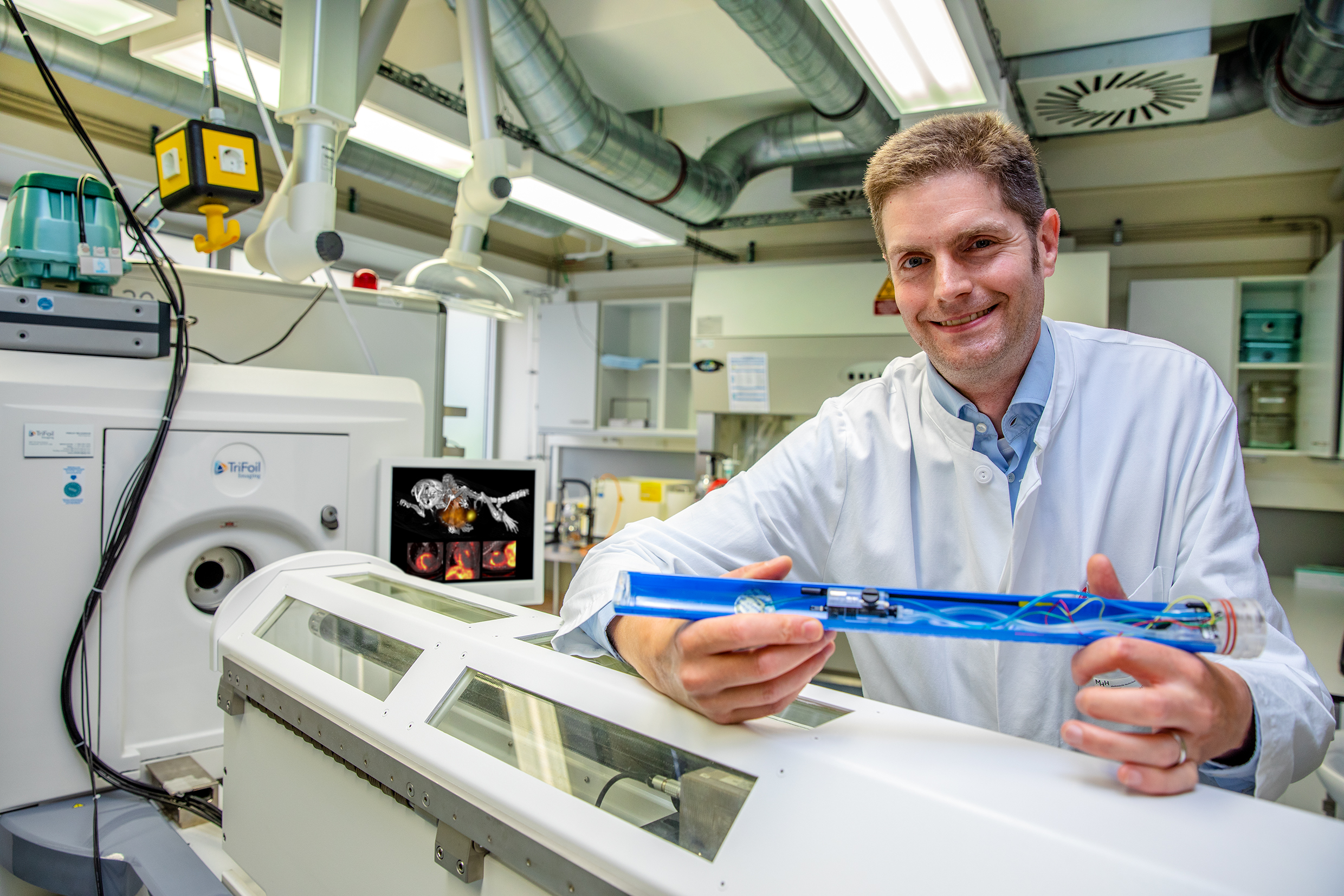German Research Foundation supports Dr. James Thackeray from the Department of Nuclear Medicine with a total of 1.2 million euros

Professor Dr. James Thackeray at a single photon emission computed tomograph (SPECT) in the MHH Laboratory for Preclinical Molecular Imaging; Copyright: Karin Kaiser / MHH
01.12.2021
The German Research Foundation (DFG) has accepted Dr. James Thackeray from the Department of Nuclear Medicine at Hannover Medical School (MHH) into the coveted Heisenberg Programme. By awarding him a Heisenberg Professorship for Translational and Cardiovascular Molecular Imaging on 1st January 2022, the DFG is recognising the outstanding quality of the scientist and supporting his research work with 710,000 euros over five years. In addition, the young scientist will receive around 480,000 euros for a research project. The work aims to modify inflammatory reactions resulting from circulatory disorders in the heart and brain in order to prevent the loss of cardiac and brain performance. "The award is proof of the excellence of his work and a great honour for all of us," says Professor Dr Frank Bengel, Director from the Department of Nuclear Medicine.
Better understanding and treating cardiovascular diseases
For the past three years, the scientist has been leading a research group for Translational and Cardiovascular Molecular Imaging, which uses state-of-the-art imaging techniques to gain ever new insights into the course of cardiovascular diseases. "In a heart attack, the immune system sends out inflammatory cells to allow the wound to heal," explains Professor Thackeray. However, if the inflammatory response is too strong, the heart muscle cells are damaged. Pathological proliferation of the connective tissue cells worsens the heart's pumping capacity and leads to cardiac insufficiency. However, the damage does not only affect the heart. The infarction also triggers an inflammation of the nerve cells. This neuroinflammation impairs the perception and thinking of those affected and can even result in dementia in the long term. Conversely, inflammation in the brain after a stroke also increases the risk of a heart attack.
In order to better understand and treat cardiovascular diseases, the scientist now wants to examine the inflammatory processes more closely. On the other hand, he wants to find biomarkers that show how the networking between the heart and the brain works, how the organs communicate with each other and how they influence each other. "Molecular imaging of acute inflammation is already giving us important insights into the course of the disease," says the scientist. Patients should benefit directly from image-guided precision medicine. "We want to further develop our examination methods in order to better assess the individual risk for consequential damage in cardiovascular diseases and the possible effects on other organs, and thus to be able to develop the timing and dose for a targeted molecular therapy," says the scientist.
Keyword Heisenberg Professorship
With the Heisenberg Professorships, the DFG supports excellent researchers for a period of five years. The funding is intended to give promising young researchers the opportunity to establish a new field of research at their university and prepare for a leading scientific position. It is named after the German physicist Werner Heisenberg, who was awarded the Nobel Prize in Physics at the age of 31.
SERVICE:
For more information, contact Professor Dr James Thackeray, thackeray.james@mh-hannover.de, telephone (0511) 532-3358.